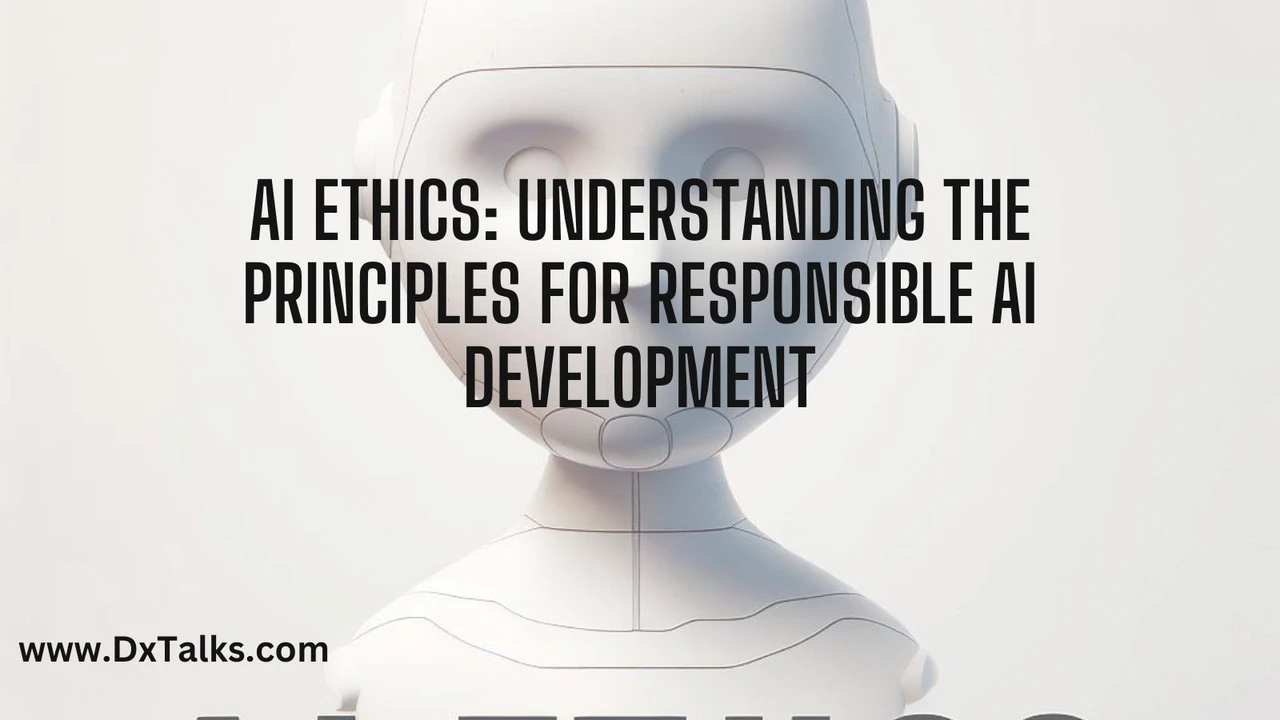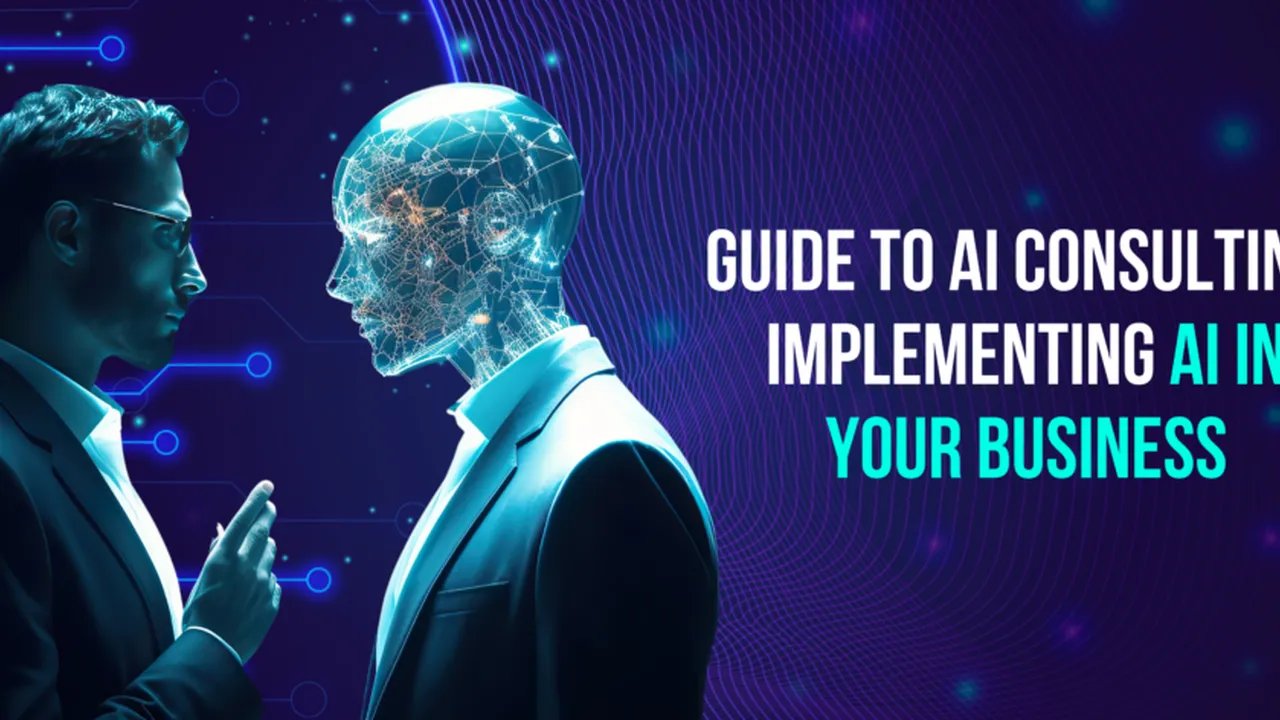AI Ethics for Developers Building Responsible AI
How non-technical individuals can understand and leverage AI in their respective fields.

AI for Non Technical Professionals Bridging the Gap
Hey there! Ever feel like AI is this super complex, techy thing that only coders and data scientists can understand? You're not alone. Many non-technical professionals look at artificial intelligence and think, 'That's cool, but what does it mean for me?' The truth is, AI isn't just for the tech gurus anymore. It's rapidly becoming a fundamental tool across almost every industry, and understanding its basics, even without diving into the code, can give you a massive edge in your career. This article is all about bridging that gap, showing you how to grasp AI concepts, leverage AI tools, and even lead AI initiatives, all without writing a single line of code.
Understanding AI Fundamentals for Business Leaders and Creatives
So, what exactly is AI? At its core, AI is about creating machines that can perform tasks that typically require human intelligence. Think problem-solving, learning, decision-making, and even understanding language or recognizing images. For non-technical folks, you don't need to know the algorithms behind it, but you should understand the different types of AI and what they can do. We're talking about Machine Learning (ML), which is how systems learn from data; Natural Language Processing (NLP), which allows computers to understand human language; and Computer Vision, which enables machines to 'see' and interpret images. Knowing these broad categories helps you identify opportunities where AI can solve real-world problems in your domain.
For instance, if you're in marketing, understanding NLP means you can see how AI can analyze customer feedback from reviews or social media. If you're in finance, knowing about ML helps you grasp how AI can detect fraudulent transactions. It's about recognizing the 'what' and the 'why,' not necessarily the 'how.' This foundational knowledge empowers you to ask the right questions, identify potential AI applications, and communicate effectively with technical teams.
Leveraging AI Tools for Enhanced Productivity and Innovation
This is where it gets really exciting for non-technical professionals. You don't need to build AI; you just need to know how to use the incredible AI-powered tools that are already out there. These tools are designed with user-friendliness in mind, often featuring intuitive interfaces that require no coding. They can automate repetitive tasks, generate creative content, analyze vast amounts of data, and provide insights that would take humans weeks or months to uncover. Think of them as super-powered assistants that augment your existing skills.
AI for Content Creation and Marketing Professionals
If you're a writer, marketer, or content creator, AI tools can be a game-changer. They can help with brainstorming, drafting, editing, and even optimizing content for SEO. Here are a few popular options:
- Jasper AI: This is a fantastic AI writing assistant that can generate blog posts, marketing copy, social media content, and more. It's known for its versatility and ease of use. You simply provide a prompt, and Jasper generates content based on your specifications. It has various templates for different content types, making it super accessible.
- Use Case: Generating blog post outlines, writing ad copy variations, creating social media captions.
- Comparison: More focused on long-form content and marketing copy compared to some general-purpose chatbots.
- Pricing: Starts around $49/month for the Creator plan, with higher tiers for teams and more advanced features.
- Copy.ai: Similar to Jasper, Copy.ai excels at generating marketing copy, sales emails, and digital ad content. It offers a wide range of tools for different use cases and is very user-friendly.
- Use Case: Crafting compelling headlines, writing product descriptions, generating email subject lines.
- Comparison: Often praised for its intuitive interface and quick generation of short-form copy.
- Pricing: Free tier available for limited use, paid plans start at $49/month for unlimited words.
- Midjourney / DALL-E 3: For visual content creators, these AI image generators are revolutionary. You describe what you want to see, and the AI creates stunning images. No design skills needed!
- Use Case: Creating unique illustrations for blog posts, generating concept art, designing social media visuals.
- Comparison: Midjourney is often lauded for its artistic quality, while DALL-E 3 (integrated into ChatGPT Plus) offers strong prompt adherence.
- Pricing: Midjourney starts at $10/month. DALL-E 3 is included with ChatGPT Plus, which is $20/month.
AI for Data Analysis and Business Intelligence
Even if you're not a data scientist, AI tools can help you make sense of complex datasets and derive actionable insights. These tools often have drag-and-drop interfaces or natural language query capabilities.
- Tableau (with AI integrations): While primarily a data visualization tool, Tableau integrates with AI/ML models to provide predictive analytics and deeper insights without requiring users to write code.
- Use Case: Identifying sales trends, predicting customer churn, visualizing complex business data.
- Comparison: More focused on interactive dashboards and visualizations than raw data manipulation.
- Pricing: Starts around $70/user/month for Tableau Creator.
- Microsoft Power BI (with AI capabilities): Similar to Tableau, Power BI allows business users to connect to various data sources, create interactive reports, and leverage AI features like 'Q&A' (natural language queries) and 'Key Influencers' to understand data drivers.
- Use Case: Building executive dashboards, analyzing financial performance, understanding customer demographics.
- Comparison: Tightly integrated with the Microsoft ecosystem, often preferred by organizations already using Microsoft products.
- Pricing: Free desktop version, Pro version at $10/user/month, Premium at $20/user/month.
- Google Looker Studio (formerly Google Data Studio): A free, web-based tool that allows you to create customizable reports and dashboards. It integrates with various data sources and offers some basic AI-powered insights.
- Use Case: Tracking website traffic, monitoring marketing campaign performance, creating simple business reports.
- Comparison: More accessible and free compared to Tableau or Power BI, but with less advanced AI features.
- Pricing: Free.
AI for Project Management and Productivity
AI can also streamline your daily workflow, helping you manage projects, schedule tasks, and even summarize meetings.
- Notion AI: Integrated directly into the popular Notion workspace, Notion AI can summarize notes, brainstorm ideas, draft content, and even help organize your tasks.
- Use Case: Summarizing long meeting notes, generating action items, drafting project briefs.
- Comparison: Best for those already using Notion as their primary workspace, as it's seamlessly integrated.
- Pricing: Notion itself has a free tier, Notion AI is an add-on starting at $10/member/month.
- Otter.ai: This tool uses AI to transcribe meetings in real-time, identify speakers, and even generate summaries and action items. Perfect for anyone who attends a lot of virtual meetings.
- Use Case: Automatically transcribing client calls, summarizing team meetings, creating searchable meeting archives.
- Comparison: Highly specialized in audio transcription and meeting summaries.
- Pricing: Free tier for limited transcription, paid plans start at $10/month.
- ClickUp (with AI features): A comprehensive project management tool that has integrated AI to help with task creation, document writing, and even generating project summaries.
- Use Case: Auto-generating task descriptions, drafting project proposals, summarizing project progress.
- Comparison: A full-fledged project management suite with AI as an added benefit.
- Pricing: Free tier available, paid plans start at $7/member/month.
Communicating and Collaborating on AI Projects
One of the biggest roles for non-technical professionals in an AI-driven world is effective communication. You're the bridge between the business needs and the technical solutions. You need to be able to articulate problems in a way that AI developers can understand, and conversely, translate technical jargon into understandable business outcomes for stakeholders.
This means focusing on the 'why' and the 'what' of AI projects. Why are we using AI for this? What business problem are we trying to solve? What are the desired outcomes? Instead of saying, 'We need a neural network to process our data,' you'd say, 'We need a system that can automatically categorize customer support tickets to reduce response times.' This shift in perspective is crucial. You become the 'translator' and the 'strategist,' guiding the AI development process from a business perspective.
Furthermore, understanding the limitations of AI is just as important as understanding its capabilities. AI isn't magic. It can make mistakes, it can be biased if trained on biased data, and it requires careful oversight. As a non-technical professional, you play a vital role in ensuring ethical AI deployment and managing expectations within your organization. You're the one who can spot potential pitfalls from a human or business perspective that a purely technical team might overlook.
Leading AI Initiatives Without a Technical Background
You might think leading an AI initiative requires a Ph.D. in computer science, but that's not necessarily true. Many successful AI projects are led by individuals with strong business acumen, strategic thinking, and excellent communication skills, even if they don't code. Your role would be to define the problem, identify potential AI solutions, assemble the right team (which includes technical experts), manage resources, and ensure the project aligns with business goals.
Think of yourself as a product manager for AI. You're responsible for the 'what' and the 'why,' while the technical team handles the 'how.' This involves:
- Identifying Opportunities: Where can AI create the most value in your organization? This requires a deep understanding of your business processes and pain points.
- Defining Scope: What exactly should the AI system do? What are its boundaries?
- Building a Team: Collaborating with data scientists, engineers, and domain experts.
- Managing Stakeholders: Communicating progress, challenges, and successes to leadership and other departments.
- Ethical Considerations: Ensuring the AI solution is fair, transparent, and responsible.
For example, if you're in HR, you might lead an initiative to use AI for resume screening. You wouldn't build the AI, but you'd define what makes a good candidate, what biases to avoid, and how the AI should integrate with existing HR systems. Your domain expertise is invaluable here.
Continuous Learning and Staying Relevant in the AI Era
The field of AI is evolving at an incredible pace. What's cutting-edge today might be commonplace tomorrow. For non-technical professionals, staying relevant means committing to continuous learning. This doesn't mean enrolling in a coding bootcamp (unless you want to!), but rather:
- Reading Industry News: Follow reputable tech news outlets, AI blogs, and industry reports.
- Attending Webinars and Conferences: Many events offer tracks specifically for business leaders and non-technical attendees.
- Taking Online Courses (Non-Coding): Look for courses on platforms like Coursera, edX, or LinkedIn Learning that focus on AI strategy, AI for business, or AI ethics.
- Experimenting with Tools: Get hands-on with the AI tools mentioned earlier. The best way to understand what AI can do is to use it yourself.
- Networking: Connect with AI professionals, both technical and non-technical, to share insights and learn from their experiences.
Embrace a mindset of curiosity and adaptability. The goal isn't to become an AI engineer, but to become an AI-literate professional who can effectively harness this powerful technology to drive innovation and success in your field. The future of work is increasingly intertwined with AI, and by bridging the gap, you're not just adapting; you're leading the way.
:max_bytes(150000):strip_icc()/277019-baked-pork-chops-with-cream-of-mushroom-soup-DDMFS-beauty-4x3-BG-7505-5762b731cf30447d9cbbbbbf387beafa.jpg)






